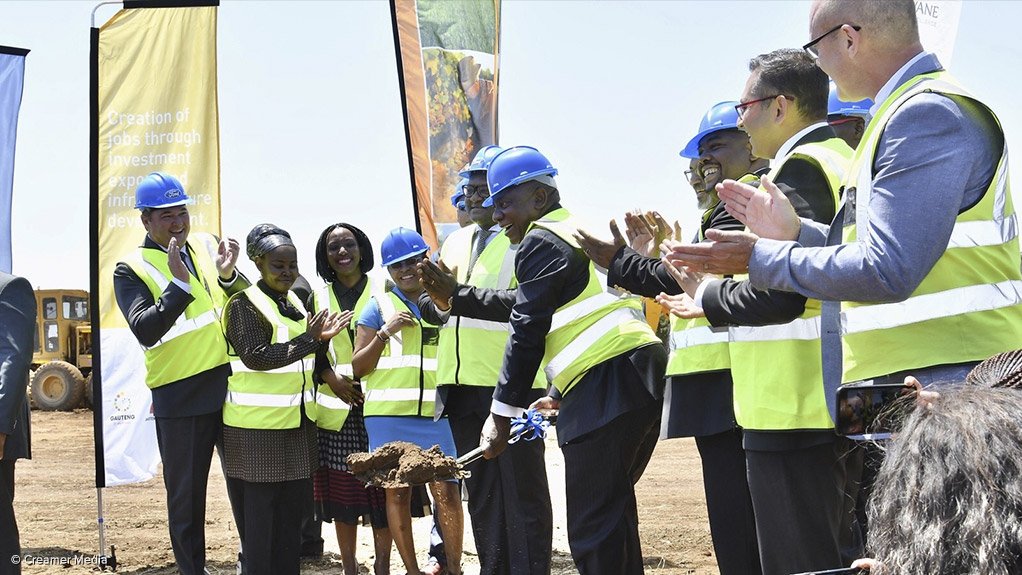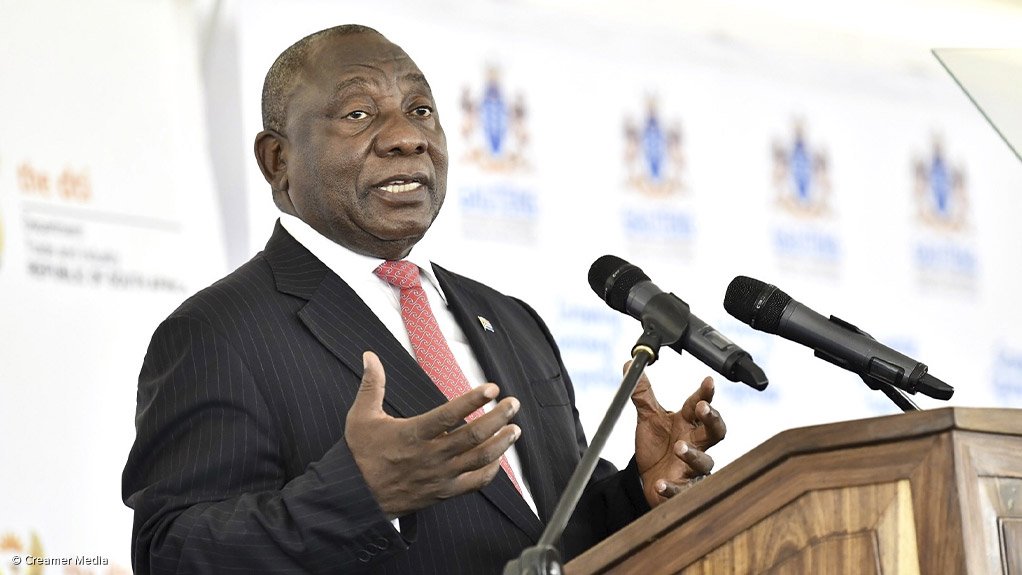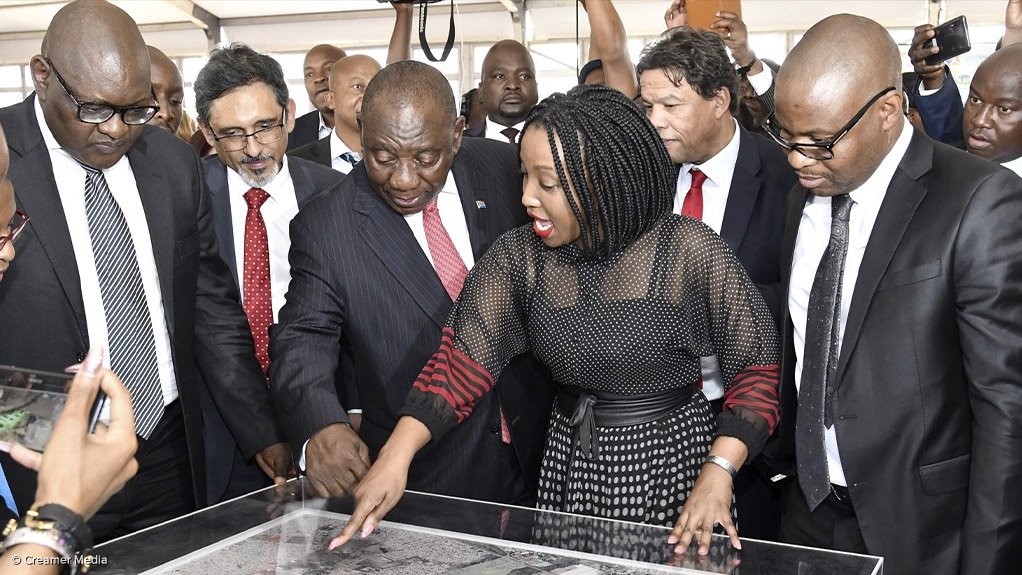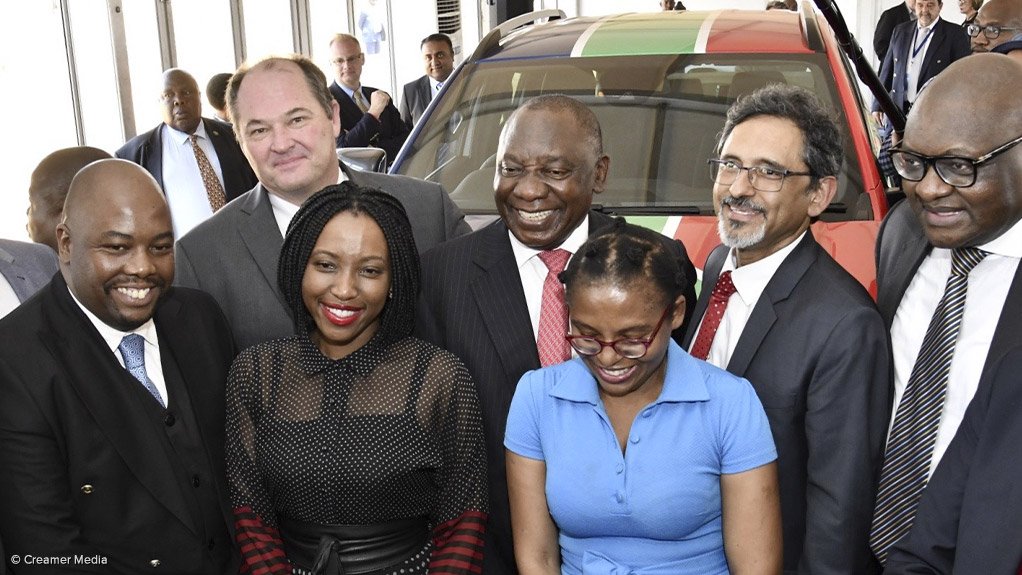President Cyril Ramaphosa has officially kickstarted construction of the Tshwane Automotive Special Economic Zone (SEZ).
The R3.5-billion development, funded by government, will be housed next door to the Ford Motor Company of Southern Africa (FMCSA) plant, in Silverton. It will act as an automotive component supplier industrial park.
The SEZ, a private-public partnership, will support FMCSA’s ambition to become the world’s largest Ford Ranger pickup plant.
The current biggest Ranger production site is in Thailand.
Speaking to the media at the official sod-turning event on Tuesday, FMCSA MD Neale Hill said current Ranger production was around 100 000 Rangers a year, with the aim to increase this to 200 000 units a year over the “next three to four years”.
The 162 ha Tshwane SEZ will be developed in phases, with the first, 81-ha phase to house nine suppliers. Envisaged direct job creation for phase 1 is 6 700 new jobs.
Some of the nine suppliers would be new, noted Hill, while some would be relocating and others would be adding capacity by expanding to the SEZ.
He did not want to name the nine suppliers.
The SEZ is open to any component supplier, and not just those providing components to Ford.
Hill said he would like to see the first supplier operational by the end of 2020.
The development of Phase 2 was imminent, he added, as Phase 1 had been oversubscribed. Apart from the Phase 1 tenants, another four suppliers had indicated that they would be interested in moving into the SEZ.
Hill said the SEZ would increase efficiencies at the Silverton Ranger plant, as it would improve the speed at which materials and components could be delivered to the plant.
Ford’s suppliers are currently spread around the larger Tshwane area.
Ramaphosa noted that SEZs – which had been revamped under his watch – offered quite a number of benefits, such as a preferential corporate tax regime; building allowances; employee tax incentives; favourable customs regulations; VAT exemptions and support for capital investment.
There are currently ten SEZs in South Africa.
“The government’s new region-based model for special economic zones is an important new tool to attract domestic and international investment, which will help businesses to become more competitive on a global scale,” said Hill.
Gauteng premier David Makhura noted that Gauteng wanted to become a “multi-tiered mega SEZ”. The province was targeting opening a high-tech, Silicon-Valley-type SEZ soon, as well as an agroprocessing SEZ.
FMCSA’s domestic turnover contributes over 1% to South Africa’s gross domestic product.
SA MUST BE 'FAST, NIMBLE'
Ramaphosa on Tuesday referred to two incidents that epitomise what government’s wide-ranging attempts to secure global investment will need to address. One was an investor waiting three years for a water licence, and another an investor which picked Brazil over South Africa owing to domestic red tape.
“We now said that water licences may not take more than three months.”
Ramaphosa added that entrepreneurs were "fast, nimble and agile and that they get things done”.
“This is the psyche I would like to inculcate in all of us as South Africans – that once a decision is taken we must immediately move and implement and not sit on that decision. This should also include our civil servants.
“Sometimes . . they move slowly. In a way it’s almost as if people are afraid to make decisions.
“I want to unlock the energy of our civil servants.
“I want to unlock the energy of all of us – let us get South Africa working and moving.”
EMAIL THIS ARTICLE SAVE THIS ARTICLE ARTICLE ENQUIRY
To subscribe email subscriptions@creamermedia.co.za or click here
To advertise email advertising@creamermedia.co.za or click here

















